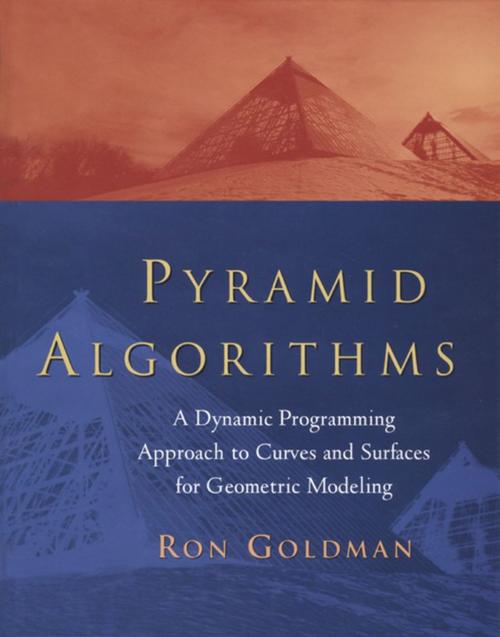Pyramid Algorithms
A Dynamic Programming Approach to Curves and Surfaces for Geometric Modeling
Nonfiction, Science & Nature, Mathematics, Applied, Computers, Application Software, Computer Graphics, General Computing| Author: | Ron Goldman | ISBN: | 9780080515472 |
| Publisher: | Elsevier Science | Publication: | July 16, 2002 |
| Imprint: | Morgan Kaufmann | Language: | English |
| Author: | Ron Goldman |
| ISBN: | 9780080515472 |
| Publisher: | Elsevier Science |
| Publication: | July 16, 2002 |
| Imprint: | Morgan Kaufmann |
| Language: | English |
Pyramid Algorithms presents a unique approach to understanding, analyzing, and computing the most common polynomial and spline curve and surface schemes used in computer-aided geometric design, employing a dynamic programming method based on recursive pyramids.
The recursive pyramid approach offers the distinct advantage of revealing the entire structure of algorithms, as well as relationships between them, at a glance. This book-the only one built around this approach-is certain to change the way you think about CAGD and the way you perform it, and all it requires is a basic background in calculus and linear algebra, and simple programming skills.
* Written by one of the world's most eminent CAGD researchers
* Designed for use as both a professional reference and a textbook, and addressed to computer scientists, engineers, mathematicians, theoreticians, and students alike
* Includes chapters on Bezier curves and surfaces, B-splines, blossoming, and multi-sided Bezier patches
* Relies on an easily understood notation, and concludes each section with both practical and theoretical exercises that enhance and elaborate upon the discussion in the text
* Foreword by Professor Helmut Pottmann, Vienna University of Technology
Pyramid Algorithms presents a unique approach to understanding, analyzing, and computing the most common polynomial and spline curve and surface schemes used in computer-aided geometric design, employing a dynamic programming method based on recursive pyramids.
The recursive pyramid approach offers the distinct advantage of revealing the entire structure of algorithms, as well as relationships between them, at a glance. This book-the only one built around this approach-is certain to change the way you think about CAGD and the way you perform it, and all it requires is a basic background in calculus and linear algebra, and simple programming skills.
* Written by one of the world's most eminent CAGD researchers
* Designed for use as both a professional reference and a textbook, and addressed to computer scientists, engineers, mathematicians, theoreticians, and students alike
* Includes chapters on Bezier curves and surfaces, B-splines, blossoming, and multi-sided Bezier patches
* Relies on an easily understood notation, and concludes each section with both practical and theoretical exercises that enhance and elaborate upon the discussion in the text
* Foreword by Professor Helmut Pottmann, Vienna University of Technology















